
"Keeping" students on their journey of knowledge
In the 2025-2026 school year, Chao A Ton, born in 2014, Dao ethnic group, is a student of class 6B - Khanh Xuan Secondary Boarding School for Ethnic Minorities, Cao Bang province. A Ton is one of two students of class 6B from Ca Lo - a border village about 30 km away from the center of Khanh Xuan commune by forest road.
Although it was the first year of primary school and a boarding school, Chao A Ton was not surprised at all. Because he had been familiar with the boarding environment since grade 5, when he was a student at Khanh Xuan Primary School for Ethnic Minorities, school year 2024 - 2025.
"From grade 1 to grade 4, I studied in the village (Ca Lo School, Khanh Xuan Primary Ethnic Minority School - Pv). When I was in grade 5, I had to go to the main school to study," Chao A Ton shared.
According to Chao A Ton, studying, living and eating at school and enjoying the State's study support policies are a great motivation for him to be determined to study well. But Ton also does not know whether he will continue his high school education or not.
"The commune does not have a boarding school connecting junior high school and high school, so when I finish middle school, I will have to travel a little further to get to high school. My family is still very poor," A Ton confided.

Chao A Ton's sharing is also the situation of the majority of students from Ca Lo village - a village that is still in the "4 no" situation: no roads, no electricity, no water and no phone signal. The whole village has 34 families (100% Dao ethnic group), all of whom are poor households.
Poverty has dragged down education in Ca Lo. As shared by Mr. Chao Van Sang, Head of Ca Lo village, children in the village mostly finished grade 9 and then dropped out of school. Even his daughter, who is in grade 8 at Khanh Xuan Secondary School for Ethnic Minorities, also dropped out of school and stayed home to help her family from the second semester of the 2023-2024 school year.
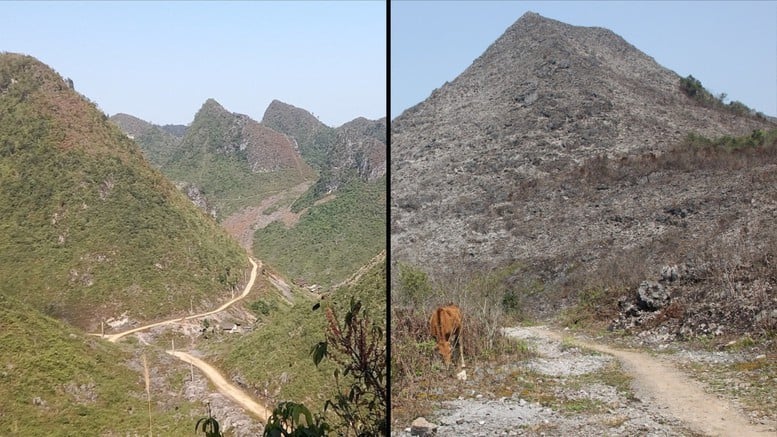
To limit the situation of students in mountainous and border areas dropping out of school due to difficult family economic conditions, in recent years, many policies to support students have been issued and implemented. Notably, the policy to support students and high schools in communes and villages with special difficulties according to Decree No. 66/2025/ND-CP dated March 12, 2025 (replacing Decree No. 116/2016/ND-CP).
According to a report by the Ministry of Education and Training (MOET), implementing this policy, a student studying at a boarding school for ethnic minorities will receive financial support for studying, equivalent to an average budget payment of 23 million VND/school year; for students at ethnic minority schools, the average is about 16 million VND/student/school year.
But after each school year, each level, the number of students in boarding and semi-boarding schools still "drops" a few. This not only wastes the State's resources invested in each student in each school year, but also makes the education career in the highlands and border areas still as difficult as climbing mountains in the rainy season.
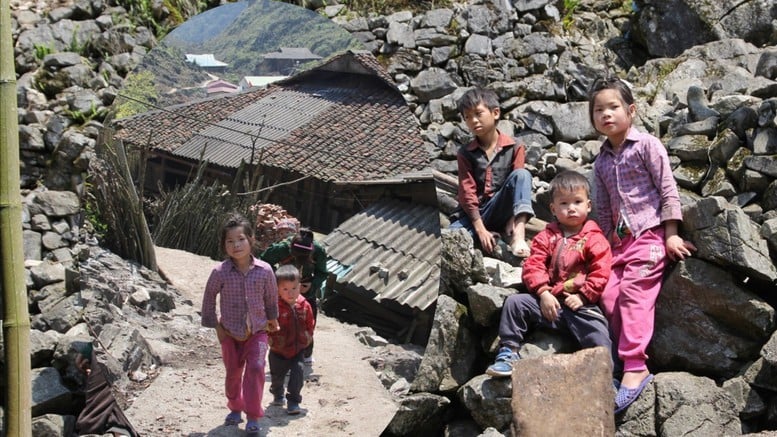
Raising teacher standards to improve education in border areas
Among the many reasons that have been identified for students in mountainous and border areas not completing their education, there is a lack of inter-level boarding schools, especially inter-level boarding schools for all three levels. According to data from the Ministry of Education and Training, in 248 border communes on the mainland, there are currently 956 general schools, of which only about 110 are inter-level primary and secondary schools; and 4 are inter-level secondary and high schools.
In particular, in 248 border communes on the mainland, there are currently no three-level primary, secondary and high schools. Therefore, the rapid implementation of the construction of multi-level boarding schools for ethnic minorities in this area is an effective solution to "retain" students.
Implementing the policy of the Politburo in Notice No. 81-TB/TW dated July 27, 2025, the Prime Minister chaired a meeting with relevant ministries and branches. The Prime Minister has launched a rapid campaign to build inter-level boarding schools for 248 border communes ; the immediate goal is to complete and start construction of 100 schools in 2025 (put into use in the 2026-2027 school year at the latest), then expand to all border areas on land.
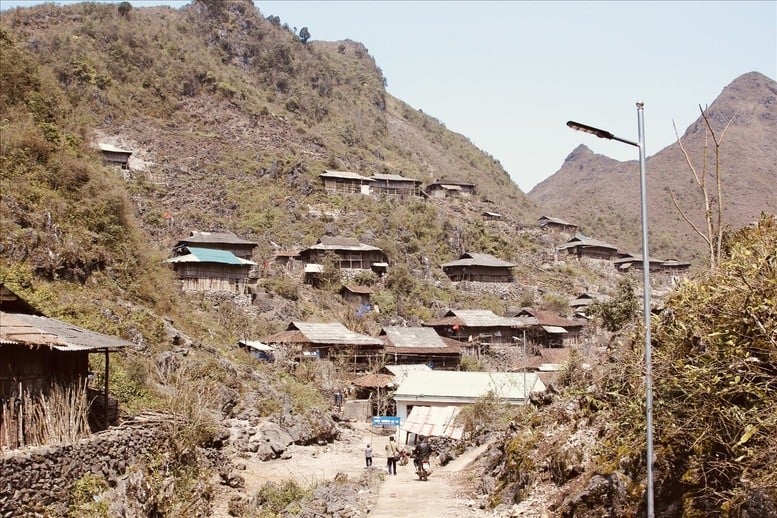
According to the design of the Ministry of Education and Training, with the investment in 248 inter-level ethnic boarding schools in border communes on the mainland, it will fully and synchronously meet the needs of studying, boarding and semi-boarding for 625,255 students. At the same time, it will arrange suitable and sufficient teachers, ensuring the quality and allowances for teachers in the new conditions.
This is clearly an opportunity as well as a challenge for the education sector in improving the quality of education in border areas, especially the quality of teachers. In reality, the current teaching staff in this area is not only lacking in quantity but also weak in quality compared to the requirements of the Education Law 2025.
The Ministry of Education and Training is drafting a Decree regulating the policy of supporting lunch for primary and secondary school students in border communes. According to this draft, primary and secondary school students in border communes, regardless of ethnicity or household registration, will receive VND450,000 per month and 8 kg of rice, for a maximum of 9 months a school year. First graders who are ethnic minorities and learn Vietnamese before entering school will receive an additional month of support. The draft is being reviewed by the Ministry of Justice before being submitted to the Government.
Returning to Muong Leo Primary and Secondary School, Son La province, we can see this more clearly. According to Report No. 208/BC-BTTH&THCSML dated May 23, 2025, the school was assigned 59 positions, but only has 55 people. The school is currently short of 1 administrator and 3 teachers, including 1 English teacher at the primary level.
Currently, the teacher/class ratio of the school is also below the prescribed level, especially at the secondary school level. According to current regulations, secondary schools for ethnic minorities are allowed to have a maximum of 2.2 teachers/class, but currently at Muong Leo Primary and Secondary School for Ethnic Minorities, this ratio is only 1.78 teachers/class.
According to the 2025 Education Law, for primary, secondary and high school levels, teachers must have a bachelor's degree or higher in a field of training appropriate to the subject. However, among the 49 teachers in charge of teaching at Muong Leo Primary and Secondary School, there are still 2 primary teachers with intermediate degrees and 1 secondary teacher with a college degree.
This is also the common situation in most schools in border areas on land. According to the report of the Ministry of Education and Training, in the 2024-2025 school year, in 248 border communes, there are 9,867 preschool teachers; 20,919 primary school teachers; the number of teachers lacking according to the staffing standards is 1,043; at the secondary school level, there are 13,489 teachers, the number of teachers lacking according to the staffing standards is 1,218.
In particular, according to the Ministry of Education and Training, in border communes, the distribution of teachers is uneven. Many remote communes still lack teachers, especially in specific subjects such as English, Information Technology, Music, and Fine Arts.
"Foreign language teachers, especially teachers who know Chinese, Lao, and Khmer, are almost non-existent or very rare in border communes, due to the lack of appropriate training or recruitment policies," said the Ministry of Education and Training.
This is clearly an issue that needs special attention from the Education sector when implementing the policy of strengthening the system of inter-level boarding schools for ethnic minorities in border areas, to ensure that where there are schools and students, there must be teachers in the classroom. When newly built or upgraded, in those "common houses" there must be "mothers" who, in addition to love and responsibility, must have the capacity to care for, nurture, and extend the education in the border areas.
Along with building schools, the Ministry of Education and Training proposed that the Government assign the Ministry to research and propose the issuance of specific priority policies to attract, use stably and improve the quality of teachers working long-term in border communes, including: preferential allowance policies, support for public housing, arrangement and rotation of cadres and teachers and creating conditions for career development...
Source: https://baolangson.vn/truong-hoc-vung-bien-noi-dai-con-chu-vung-cao-bai-2-5059724.html



![[Photo] Prime Minister Pham Minh Chinh chairs the first meeting of the Central Steering Committee on housing policy and real estate market](https://vphoto.vietnam.vn/thumb/1200x675/vietnam/resource/IMAGE/2025/9/22/c0f42b88c6284975b4bcfcf5b17656e7)






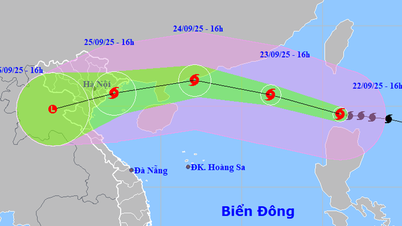












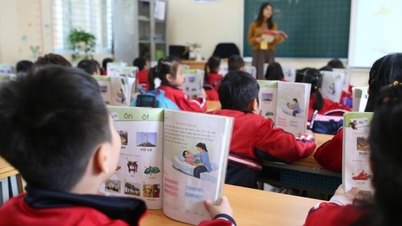

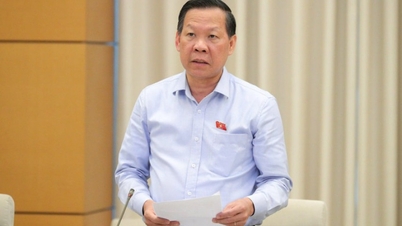




![[Photo] General Secretary To Lam presents the First Class Labor Medal to the Vietnam National Energy and Industry Group](https://vphoto.vietnam.vn/thumb/1200x675/vietnam/resource/IMAGE/2025/9/21/0ad2d50e1c274a55a3736500c5f262e5)








































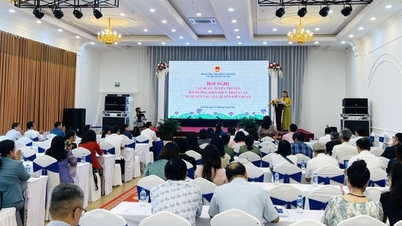


























Comment (0)